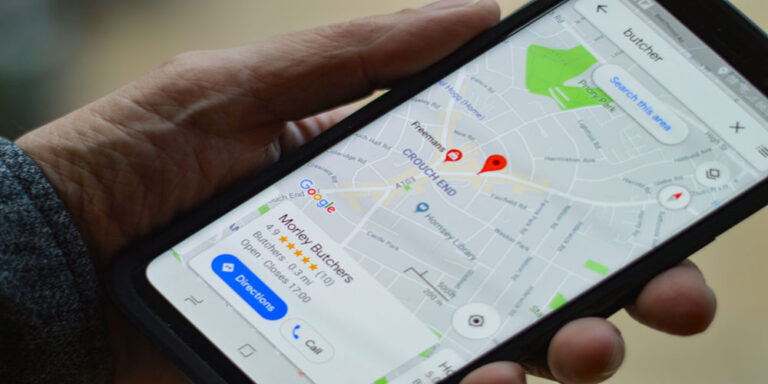
Inbound links, also known as backlinks, are an essential component of search engine optimisation (SEO) and can significantly impact your website’s visibility and organic rankings. These links are like virtual endorsements from other websites, signaling to search engines that your content is valuable and trustworthy. However, attracting high-quality inbound links can be a challenging task. In this blog post, we will explore some of the best strategies to attract inbound links and boost your website’s SEO efforts.
Create High-Quality, Link-Worthy Content:
The foundation of attracting inbound links lies in creating high-quality content that is valuable, informative, and engaging. When you publish content that is unique, well-researched, and provides real value to your target audience, other websites are more likely to link to it as a reference or resource. Consider incorporating original data, expert opinions, compelling visuals, and well-crafted narratives to make your content stand out from the crowd.
Implement Effective On-Page SEO:
Optimizing your website’s on-page elements can make it easier for search engines to understand and index your content. By strategically placing relevant keywords in your page titles, headings, and meta descriptions, you can improve your website’s visibility in search results. When your pages rank higher, they become more discoverable, increasing the chances of other websites linking to your valuable content.
Guest Blogging and Contributor Opportunities:
Guest blogging is an effective way to showcase your expertise and gain exposure in your industry while acquiring valuable inbound links. Identify reputable blogs or websites in your niche that accept guest contributions and offer to write high-quality articles. In return, you can include a link back to your website in your author bio or within the content itself. Remember, the key is to provide valuable content and not merely focus on link acquisition.
Build Relationships and Network:
Building relationships within your industry can open doors to potential link-building opportunities. Engage with influencers, thought leaders, and webmasters through social media platforms, industry events, and online communities. By establishing genuine connections, you increase the likelihood of them linking to your content or mentioning your website in their own articles. Building a network of supporters and advocates can significantly amplify your link-building efforts.
Utilise Content Promotion Strategies:
Creating outstanding content is just the first step; you also need to actively promote it. Leverage social media platforms, email newsletters, and industry-specific forums to distribute and share your content with a wider audience. The more exposure your content receives, the higher the chances of other websites discovering and linking to it. Additionally, reaching out to relevant bloggers or website owners to notify them of your valuable content can increase the likelihood of them linking to it.
Resource Pages and Link Roundups:
Many websites have resource pages or regularly publish link roundups that feature valuable content from various sources. Identify websites in your industry that curate such lists and reach out to them with your best content. If your content aligns with their audience’s interests, there is a good chance they will include it in their roundup, providing you with a valuable inbound link.
Create Linkable Assets:
In addition to creating informative articles and blog posts, consider developing linkable assets that other websites would find valuable to link to. This could include comprehensive guides, case studies, infographics, or interactive tools. These assets provide unique and valuable resources that others would naturally want to reference, increasing the likelihood of attracting inbound links.
Broken Link Building:
Broken link building is a technique where you identify broken links on other websites and offer your own content as a replacement. Start by finding relevant websites in your industry and use tools like Check My Links or Broken Link Checker to scan their pages for broken links. Reach out to the website owner or webmaster, notifying them of the broken link and suggesting your content as an alternative. This approach not only helps them fix their broken links but also provides an opportunity to gain a valuable inbound link.
Engage in Influencer Marketing:
Collaborating with influencers in your industry can significantly boost your link-building efforts. Influencers often have large followings and authoritative websites, making them ideal partners for securing valuable inbound links. Build relationships with relevant influencers through social media or email outreach, and propose partnerships such as guest posting, co-creating content, or featuring them as expert contributors on your website. When influencers endorse your content or mention your website, it can lead to increased visibility and organic link acquisition.
Participate in Online Communities and Forums:
Engaging in online communities and forums related to your industry allows you to establish your expertise and connect with like-minded individuals. Actively participate in discussions, provide helpful insights, and share valuable content. As you become a trusted contributor, other community members may naturally link to your website or refer to your content in their own posts. However, always ensure your engagement is genuine and adds value, rather than solely focusing on link acquisition.
Monitor Your Brand Mentions:
Regularly monitor online mentions of your brand or website using tools like Google Alerts or social media monitoring platforms. When someone mentions your brand without linking to your website, reach out to them and kindly request a link attribution. Many website owners are receptive to such requests, especially if your content aligns with their interests or if they’ve referenced your website as a valuable resource.
Foster Relationships with Journalists and Media Outlets:
If your website or business offers unique insights or expertise in a particular field, reach out to journalists and media outlets covering relevant topics. Provide them with valuable information, statistics, or expert opinions that could be used in their articles. When journalists cite your contributions, they often include a link to your website as a reference. Building relationships with journalists and becoming a go-to source for industry-related information can lead to valuable inbound links and increased visibility.
Remember, attracting high-quality inbound links is a continuous process that requires consistency, patience, and a commitment to providing value. By implementing these strategies and maintaining a focus on quality content, you can steadily enhance your website’s authority, improve SEO, and establish a strong online presence.







